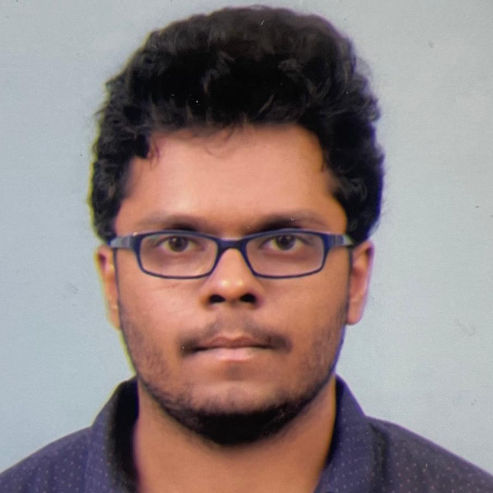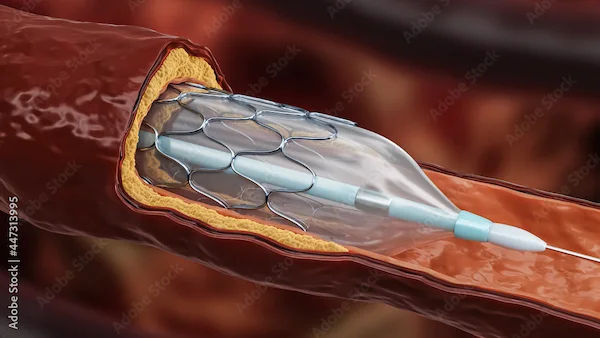What Is The Most Common Complication After Angioplasty?
Restenosis, or re-narrowing of the artery, is the most common complication after angioplasty. Learn why it happens, how to recognise it, and steps you can take to prevent it.

Written by Dr.Sonia Bhatt
Last updated on 3rd Jul, 2025

Introduction
Angioplasty is a common and life-saving procedure used to open blocked or narrowed arteries, usually in the heart (coronary arteries). While it is generally safe and effective, like any medical procedure, it can have some complications. Understanding these risks can help patients stay informed and take necessary precautions for a smooth recovery.
The Most Common Complication: Restenosis
The most frequent complication after angioplasty is restenosis, which means the treated artery becomes narrow again over time. This happens because the artery walls can sometimes respond to the procedure by forming excess scar tissue, leading to a recurrence of blockages.
1. Why Does Restenosis Happen?
Restenosis typically occurs due to the body’s natural healing response. Here are the main reasons:
1. Natural Healing Response – After angioplasty, the body tries to heal the treated area, sometimes causing excessive tissue growth inside the artery.
2. Stent-Related Factors – If a stent, a small mesh tube, is placed, the body may react by forming scar tissue around it, leading to re-narrowing.
3. Underlying Conditions – Patients with diabetes, high cholesterol, or those who smoke are at higher risk.
2. Symptoms of Restenosis
If restenosis occurs, symptoms may resemble those before angioplasty, such as:
Chest pain or discomfort (angina)
Shortness of breath
Fatigue during physical activity
If you experience these symptoms, consult your doctor immediately.
Consult Top Specialists for Personalised Heart Health Advice
Other Possible Complications After Angioplasty
While restenosis is the most common, other complications may include:
1. Bleeding or Bruising at the Catheter Site – Mild bruising is normal, but excessive bleeding should be reported.
2. Blood Clots – Rarely, clots can form inside the stent, leading to a sudden blockage (stent thrombosis).
3. Infection – Though uncommon, infections at the insertion site can occur.
4. Allergic Reaction to Contrast Dye – Some patients may react to the dye used during the procedure.
5. Kidney Problems (Contrast-Induced Nephropathy) – The dye can sometimes affect kidney function, especially in patients with pre-existing kidney issues.
How to Reduce the Risk of Complications
Fortunately, many complications can be prevented or managed with proper care. Here’s what you can do:
1. Take Prescribed Medications
One of the most important steps in preventing complications is to take your medications exactly as prescribed. Never skip or stop any medicine without consulting your doctor.
Blood Thinners (Antiplatelets) – Drugs like aspirin or clopidogrel prevent clots from forming inside the stent. Never stop these without consulting your doctor.
Cholesterol-Lowering Drugs (Statins) – These help keep arteries clear.
Blood Pressure & Diabetes Medications – Managing these conditions reduces the risk of restenosis.
2. Follow a Heart-Healthy Diet
What you eat plays a crucial role in recovery and overall heart health. A balanced diet not only helps your heart heal but also prevents future complications.
Eat more fruits, vegetables, whole grains, and lean proteins.
Reduce salt, sugar, and unhealthy fats.
Avoid processed foods and excessive red meat.
3. Stay Active (With Doctor’s Approval)
Physical activity helps maintain heart strength—but only when done safely. Gentle movement improves circulation and supports overall well-being.
Light exercises like walking can improve heart health.
Avoid strenuous activities immediately after the procedure.
4. Quit Smoking & Limit Alcohol
Eliminating smoking and limiting alcohol are critical for heart health post-angioplasty.
Quit smoking to reduce the risk of re-narrowing and other cardiac issues.
If you drink alcohol, do so in moderation and only if your doctor approves.
5. Regular Follow-Ups
Ongoing care is key to ensuring a smooth recovery and catching any early signs of trouble. Regular monitoring can help you stay on track and reduce long-term risks.
Attend all scheduled check-ups to monitor heart health.
Report any unusual symptoms promptly.
When to Seek Immediate Medical Help
While most complications are manageable, some require urgent attention. Contact your doctor or go to the hospital if you experience:
Severe chest pain
Sudden shortness of breath
Heavy bleeding or swelling at the catheter site
Fever or signs of infection
Conclusion
Angioplasty is a highly effective treatment for blocked arteries, but restenosis, re-narrowing of the artery, remains the most common complication. By following your doctor’s advice, taking medications as prescribed, and maintaining a healthy lifestyle, you can significantly reduce risks and enjoy a better quality of life.
If you have concerns about your recovery or need a follow-up consultation, Apollo24|7 offers expert cardiology care with easy online appointments. Stay proactive about your heart health—book a consultation today!
Consult Top Cardiologists
Consult Top Specialists for Personalised Heart Health Advice

Dr. Vithal D Bagi
Cardiologist
15 Years • MBBS, MD,DM (Cardiology),DNB (Crdiology ),FSCAC,Senior Consultant & Interventional Cardiologist
Bengaluru
Apollo Hospitals Jayanagar, Bengaluru

Dr. Lal Daga
Cardiologist
20 Years • MBBS, DNB [MED], DNB [CARDIO], FESC [INT], MNAMS
Ahmedabad
Apollo Hospitals Gandhinagar, Ahmedabad

Dr. Dayanashre N
General Physician
3 Years • MBBS
Bengaluru
PRESTIGE SHANTHINIKETAN - SOCIETY CLINIC, Bengaluru

Dr. Bhethala Sharan Prakash
General Physician/ Internal Medicine Specialist
5 Years • MBBS MD
Bengaluru
PRESTIGE SHANTHINIKETAN - SOCIETY CLINIC, Bengaluru

Dr. Anand Ravi
General Physician
2 Years • MBBS
Bengaluru
PRESTIGE SHANTHINIKETAN - SOCIETY CLINIC, Bengaluru
Consult Top Cardiologists

Dr. Vithal D Bagi
Cardiologist
15 Years • MBBS, MD,DM (Cardiology),DNB (Crdiology ),FSCAC,Senior Consultant & Interventional Cardiologist
Bengaluru
Apollo Hospitals Jayanagar, Bengaluru

Dr. Lal Daga
Cardiologist
20 Years • MBBS, DNB [MED], DNB [CARDIO], FESC [INT], MNAMS
Ahmedabad
Apollo Hospitals Gandhinagar, Ahmedabad

Dr. Dayanashre N
General Physician
3 Years • MBBS
Bengaluru
PRESTIGE SHANTHINIKETAN - SOCIETY CLINIC, Bengaluru

Dr. Bhethala Sharan Prakash
General Physician/ Internal Medicine Specialist
5 Years • MBBS MD
Bengaluru
PRESTIGE SHANTHINIKETAN - SOCIETY CLINIC, Bengaluru

Dr. Anand Ravi
General Physician
2 Years • MBBS
Bengaluru
PRESTIGE SHANTHINIKETAN - SOCIETY CLINIC, Bengaluru
.webp)
_3.webp)


